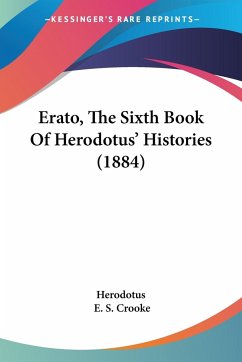The Memorabilia of Xenophon, Book 4 is a classic work of ancient Greek literature that has been translated into English and edited by Korner in 1856. This book is a collection of dialogues and speeches attributed to the famous philosopher Socrates, as recounted by his disciple Xenophon. The book is divided into four main sections, each of which covers a different aspect of Socrates' teachings and philosophy. The first section of the book focuses on the importance of virtue and the pursuit of excellence in all aspects of life. Socrates argues that true happiness and fulfillment can only be achieved through the cultivation of moral and intellectual virtues, such as wisdom, courage, justice, and self-control. He also emphasizes the importance of self-knowledge and self-reflection in this process.The second section of the book deals with the nature of piety and religion. Socrates challenges conventional beliefs about the gods and their role in human affairs, arguing that true piety consists not in external rituals and sacrifices, but in a genuine reverence for the divine and a commitment to living a virtuous life.The third section of the book explores the relationship between friendship and virtue. Socrates argues that true friendship is based on mutual respect, trust, and a shared commitment to moral excellence. He also discusses the importance of choosing good friends and avoiding bad ones, as well as the role of friendship in personal growth and development.The final section of the book is a collection of miscellaneous dialogues and speeches on various topics, including the nature of love, the art of persuasion, and the importance of self-discipline and moderation. Throughout the book, Socrates' teachings are presented in a clear and accessible manner, making it an excellent resource for anyone interested in ancient Greek philosophy and ethics.With Explanatory Notes, And Chronology Of The Period In Which Flourished Socrates And Xenophon, With A Literal Translation, A Brief Memoir Of Socrates, Etc.This scarce antiquarian book is a facsimile reprint of the old original and may contain some imperfections such as library marks and notations. Because we believe this work is culturally important, we have made it available as part of our commitment for protecting, preserving, and promoting the world's literature in affordable, high quality, modern editions, that are true to their original work.
Hinweis: Dieser Artikel kann nur an eine deutsche Lieferadresse ausgeliefert werden.
Hinweis: Dieser Artikel kann nur an eine deutsche Lieferadresse ausgeliefert werden.








